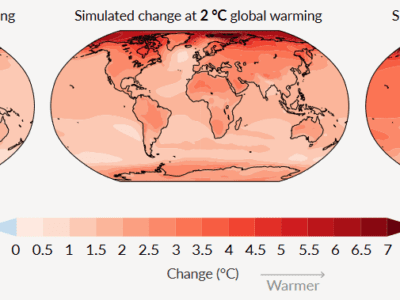Legacy Goods and Environment Preservation
The value of some goods like wilderness today depends on their futures.
Normally, economists imagine, equal experiences become less valuable as they recede further into the future. But some types of goods don’t have that kind of relationship with future experiences. They can become more valuable as they extend farther into to the future.
Take this blog post, for example. I’m really happy that you’re reading it today. But it will be even cooler if someone reads it ten years from now. And it would be super cool if someone would read it a century from now. It’s also true that some people are more valuable because of their past histories – something owned by your grandparents might mean more to you than an otherwise identical object without that history. Or both could be true — an heirloom might mean more because it belonged to your grandparents and will someday belong to your grandchildren.
What’s going on here is a bit like a network externality. A phone is worth more, the more other people get phones. In the situation I’m discussing, it’s as if a phone became more valuable the more people in the past and the future got phones.
It seems to me that many aspects of the environment have this property. For instance, one reason one might value wilderness would be that the wilderness experience connects us with much older parts of human history, and one might also want to preserve wilderness so that the same experience will be available far in the future, when some much of the manmade world will be radically different.
From an economic view-point, this increase in the value of future wilderness experience has implications for discounting. Although discounting may still be appropriate, it is partly countered by the growing value we might attach the wilderness experience of others that the farther they are in the future. The result would be a lower discount rate for goods of this kind as opposed to ordinary goods.
Or in simpler terms, the ability of some kinds of experiences to link us with the past and the future gives them an extra dimension of value, one that grows over time rather than falling.
Reader Comments
3 Replies to “Legacy Goods and Environment Preservation”
Comments are closed.






The point is well taken. See John Krutilla, “Conservation Reconsidered”, a short and influential article in the 1960s in the American Economic Review.
This blog is worthy of being read in the future — and it may be. One reason is that it identifies that wilderness should not be given a standard discount because of its value to others in the future. Perhaps wilderness will even appreciate in value over time. I think so, as cities expand, you continue to see desire for environmental experiences expand as well. There will always be a value in adventure and experience. I don’t have grandchildren yet, but Earth is an heirloom that we can protect, in part through law, and hand down to them. Thanks for a sound economic perspective that they may indeed appreciate in the future. I’ll send this to my son who is studying economics.
Dan, the most inconvenient truth of all was reported in “Berkeley in the News” on Thursday in “On Climate Change, Are University Researchers Making a Difference?”:
While university scientists have “a formidable record of accomplishment in the field of climate-change research,” this author takes a look at what they haven’t achieved — “figuring out how to stop it.” There are a number of considerations, including whether researchers should keep out of politics, and whether they have the right incentives or adequate tools. But there’s also, some say, a problem of “faintheartedness,” and that, says energy professor Daniel Kammen, is a “completely fair criticism.” He notes that as “the mother of all externalities,” climate is perhaps the clearest case in which academics who are concerned about the societal impact of their work should be involved in developing comprehensive problem-solving strategies.